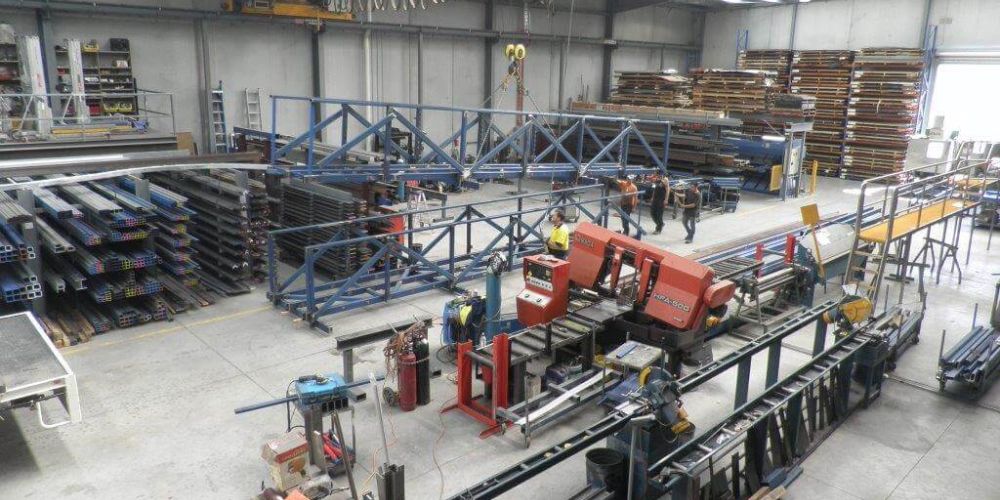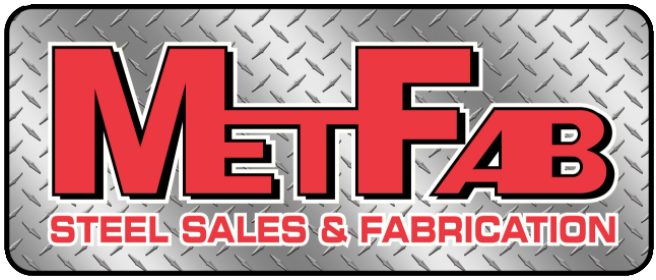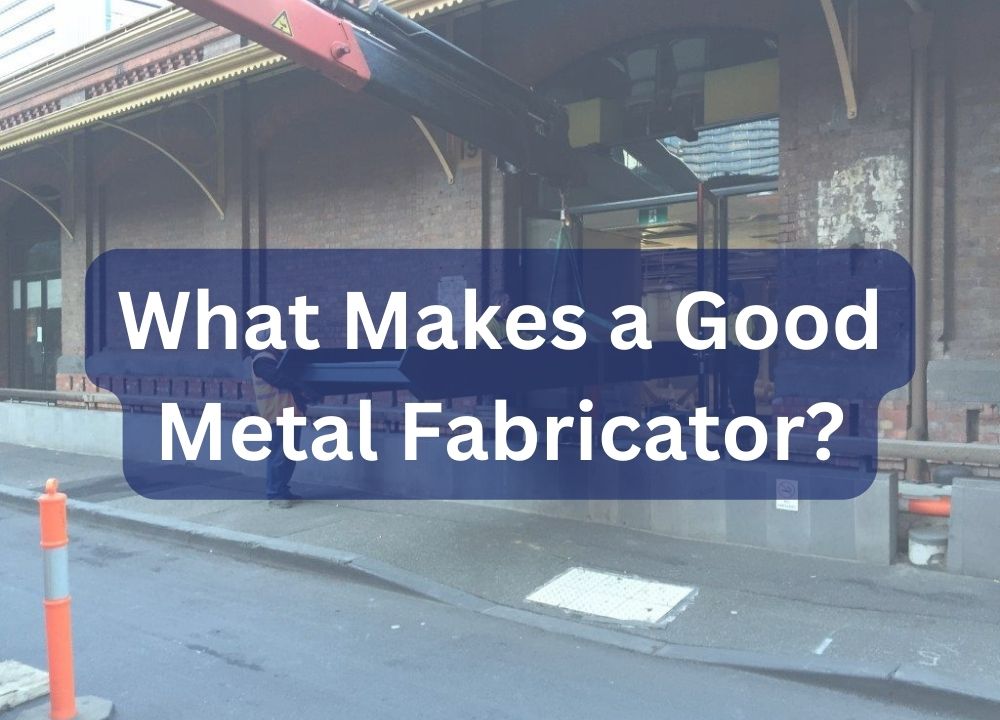What Makes a Good Metal Fabricator?
If you're unfamiliar with the word, a metal fabricator turns raw metal resources into a finished product. This procedure includes cutting, bending, welding, and assembling numerous metal pieces to produce a product that fits the criteria.
Metal fabrication is essential in many industries, including construction, automotive, aerospace, and manufacturing. Because of metal fabrication, we have machines, automobiles, building structures, and domestic items.
The first and most crucial step in any metal fabrication job is to choose the correct metal fabricator. The metal fabricator you hire will collaborate with you from start to end, so find someone you can trust and you can talk honestly and readily.
Choosing the right metal fabricator is the initial and most crucial step in any metal fabrication project. The metal fabricator you use will partner with you from start to finish. Pick someone you can trust and with whom you can communicate openly and honestly. So, let's start and discover what it takes to be a skilled metal fabricator!
Qualities of a Metal Fabricator That You Can Trust
A good metal fabricator has specific skills and characteristics allow them to generate high-quality finished items. Here are some necessary abilities and attributes of a skilled metal fabricator:
Pay close attention to the details
Precision and accuracy are required in metal production to ensure the finished product satisfies the necessary parameters. A skilled metal fabricator must pay attention to detail, taking accurate measurements and ensuring that every component fits precisely.
Knowledge and experience
A skilled metal fabricator knows metalworking processes, tools, and equipment. To operate well with metals, they need to know numerous types of metals and their qualities.
Can work with a variety of materials
Steel, aluminium, copper, brass, bronze, stainless steel, and iron are some of the few metals a professional metal fabricator can handle. They must understand how to handle each material to obtain the intended result.
Effective communication skills
A skilled metal fabricator must have outstanding communication skills to comprehend project needs and successfully communicate information to other team members.
Observance of safety standards
Metal manufacturing necessitates using large gear and equipment, which can be hazardous. A professional metal fabricator must follow safety regulations to provide a safe working environment.

What Does a Metal Fabricator Do?
A metal fabricator's duties and responsibilities may differ based on the industry and project they are working on. However, some of the essential jobs and obligations of a metal fabricator are the following:
Metal shaping, cutting, and joining
The primary task of a metal fabricator is to cut, shape, and assemble metal pieces to form a final product. Numerous tools and procedures, such as cutting, bending, welding, and assembling metal components, are used to reach the specified standards.
Reading and comprehending blueprints and schematics
To comprehend the project's needs, a professional metal fabricator must be able to read and understand drawings and schematics. Understanding technical drawings and specifications is necessary to guarantee that the end product fulfils the client's expectations.
Use various tools and equipment
A metal fabricator must be proficient in using various tools and equipment, including saws, drills, presses, grinders, and welding machines. They must use these tools and equipment safely and successfully to finish manufacturing.
Final product quality control and inspection
A professional metal fabricator must execute quality control and inspection to guarantee that completed items meet the requirements. They must inspect the product for flaws, measure measurements, and make any required revisions to verify that it matches the client's standards.
Types of Metal Fabricators
Depending on the business and project needs, a metal fabricator may specialise in various forms of fabrication. Here are some examples of typical metal fabricators:
Fabricators of structural metal
Structural metal fabricators create large structures such as bridges, buildings, and towers. They construct these structures using a variety of metal fabrication processes, such as welding, bending, and cutting.
Fabricators of ornamental metals
Ornamental metal fabricators design and manufacture attractive metal structures such as gates, fences, railings, and sculptures. To make distinctive and complicated patterns, they employ a variety of procedures, including forging, casting, and welding.
Sheet metal fabricators
Sheet metal fabricators deal with thin metal sheets only. They utilise cutting, bending, and punching procedures to make goods, including HVAC ducts, vehicle bodywork, and electrical inclosures.
Welders
Welders are experts at joining metal components using different welding procedures such as MIG, TIG, and Stick welding. They might work in various sectors, such as building, manufacturing, and repair.
Machinists
Machinists use precise tools and equipment to cut and shape metal components to specifications. They might work in fields like aerospace, automotive, and manufacturing.
Different Types of Materials that a Metal Fabricator Can Work With
Metal fabricators work with a wide variety of materials, including:
1. Steel: Because of its strength, durability, and adaptability, it is a preferred choice for structural and decorative metal production.
2. Aluminium: A lightweight, corrosion-resistant material used extensively in sheet metal production and aerospace applications.
3. Copper: A pliable and corrosion-resistant metal used in manufacturing decorative metals, electrical wiring, and plumbing.
4. Brass: This type of metal is long-lasting and visually appealing metal in ornamental fabrication and musical instruments.
5. Stainless steel: A low-maintenance, corrosion-resistant material used in structural metal manufacturing, medical equipment, and food processing.
How Can I Determine if a Metal Fabricator is Experienced and Qualified?
When looking for a metal fabricator, be sure they have the required experience and qualifications to perform your project. Here are some methods for determining if a metal fabricator is qualified:
How Can I Determine if a Metal Fabricator is Experienced and Qualified?
A metal fabricator's income might vary based on several things. The following are some of the aspects that might influence a metal fabricator's salary:
According to Payscale, the average salary for a metal fabricator in Australia is AU$ 26.38 per hour, ranging from AU$ 19.07 to AU$ 38.75 per hour. A metal fabricator's yearly pay ranges from AU$ 40,000 to AU$ 84,000, averaging AU$ 56,415 annually.
FREQUENTLY ASKED QUESTIONS
Conclusion
Metal fabrication plays an essential role in many sectors. It necessitates experienced people with attention to detail, experience, expertise, the ability to work with varied materials, solid communication skills, and adherence to safety regulations. Metal fabricators cut, shape, and connect metal pieces while reading blueprints, operating equipment, doing quality control, and inspecting final goods.
Metal fabricators work with various materials, including steel, aluminium, copper, and brass. When selecting a skilled metal fabricator, look for qualifications, licences, a good portfolio of previous work, references and testimonials, and an understanding of industry standards and laws.
Choosing the best metal fabricator for your project is critical to its success. You may make an informed selection and choose an expert who can produce high-quality craftsmanship if you examine the elements discussed in this blog.


